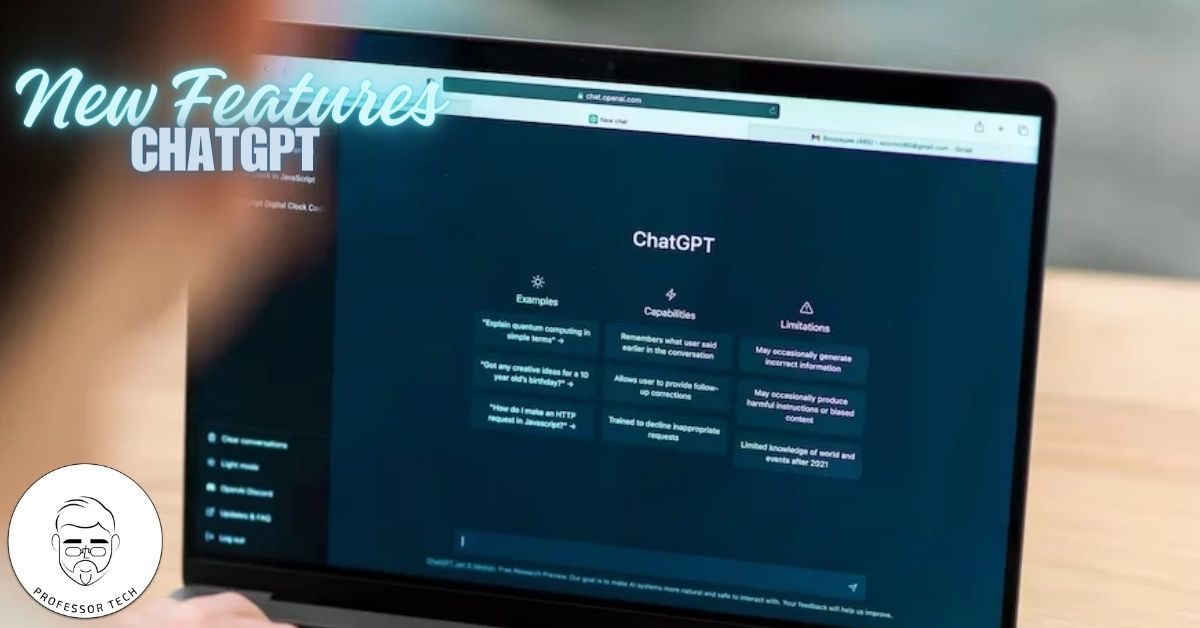One of the platforms with the greatest growth at the moment is ChatGPT, and new features will be added soon.

With more than 100 million users per week, ChatGPT is one of the platforms with the quickest growth rates ever. OpenAI CEO Sam Altman revealed this amount during the company’s inaugural developer conference. These are a few of our favorite new features that OpenAI revealed at the same event for ChatGPT.
It will be possible for users to make custom GPTs
The ability to train GPTs is one of the primary advantages of ChatGPT Plus, which might pay off for users down the road. These are modified versions with dedicated features, akin to smartphone apps. After that, they may be made available through a URL or a special OpenAI store that launches later this month. The authors of those GPTs will get a cut of the sales in exchange for their labor, but it’s not yet known how much. Moreover, coding expertise is not required.
As demonstrated by the Sous Chef above, you can snap photos of the contents of your refrigerator and ask it to suggest dishes. Though early reviews suggest that it’s not working too well, the concept is still sound. All you need to do is teach chatbots certain use cases; theoretically, they should be proficient in those areas. Although it will take some time to develop into a service consumers are willing to pay for, it is undoubtedly promising.

GPT-4 Turbo will provide substantial improvements
Although GPT-4 remains exclusive to premium Plus subscribers, the business has recently unveiled GPT-4 Turbo, which will function more efficiently, quickly, and affordably. It can fit a lot of data in the first prompt and is trained on data up to April 2023. Specifically, OpenAI claims that their 128KB context window is “equivalent to more than 300 pages of text in a single prompt.”
What’s even better is that developers may utilize it for three times less money—a token is half a word—costing $0.01 for every 1,000 tokens. This is a big reduction from $0.03 per 1,000 tokens, especially in larger data settings.
Enterprise users are accused of violating copyright, OpenAI will defend them
OpenAI will employ a tool called Copyright Shield to defend corporate customers who are accused of copyright infringement, as Google and Microsoft have pledged to do. The corporation declared, “We will now intervene on behalf of our customers and cover any associated costs in the event that you are sued for copyright infringement.” OpenAI wants people to feel comfortable using generative AI in professional environments, and this is a smart approach to do that. However, there is no information about where or how it would operate.
Speech Produced by OpenAI’s new Text-to-Speech API is of human caliber
During the event, OpenAI also unveiled a new text-to-speech API that developers may use for $0.015 for every 1,000 characters transmitted. Anyone using the OpenAI ChatGPT API will be able to access the six realistic-sounding preset voices with varying accents.

OpenAI is trying to stay Ahead
Being one of the largest and most well-known AI chatbots available, OpenAI’s ChatGPT is starting to face competition from Bing Chat and Google Bard. Given the significant progress made by Google Bard in particular since its inception, the corporation must both meet and surpass the offers of its rivals. OpenAI’s developer conference was significant because of this, and some of these developments could prove to be interesting.
FAQs
- Q: What sets OpenAI’s Text-to-Speech API apart from other speech synthesis technologies?
- A: OpenAI’s TTS API stands out for its unparalleled naturalness, adaptive prosody, and customizable voices, offering a level of speech synthesis that redefines industry standards.
- Q: How does the adaptive prosody of OpenAI’s TTS API enhance the user experience?
- A: The adaptive prosody allows the system to intuitively adjust speech patterns based on context, ensuring a natural flow of conversation and making the auditory experience more engaging and dynamic.
- Q: What industries can benefit most from the applications of OpenAI’s TTS API?
- A: OpenAI’s TTS API has diverse applications, with notable impacts on entertainment, education, and accessibility. It can revolutionize virtual experiences in gaming, enhance e-learning materials, and contribute to a more inclusive digital environment.
- Q: How does OpenAI’s TTS API cater to a global audience with its multilingual support?
- A: The TTS API supports multiple languages, breaking communication barriers and providing a versatile solution for users around the world, making it a preferred choice for applications with diverse linguistic needs.
- Q: Can you elaborate on the customization options for voices in OpenAI’s TTS API?
- A: OpenAI empowers users with the ability to customize voices, allowing for a personalized and distinctive auditory experience. This feature adds a layer of adaptability, making the TTS API suitable for a wide range of applications and user preferences.



